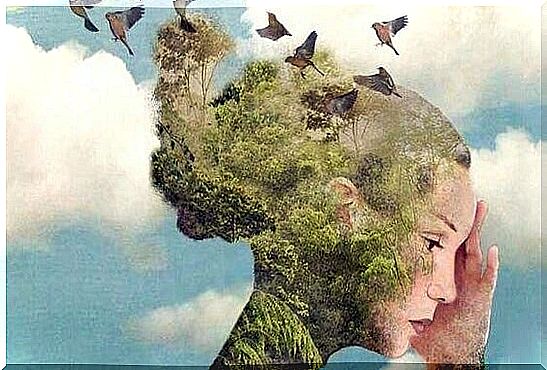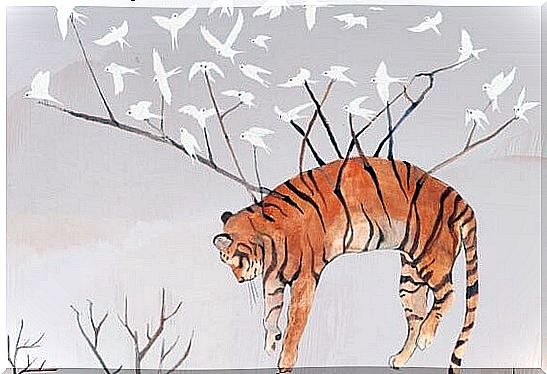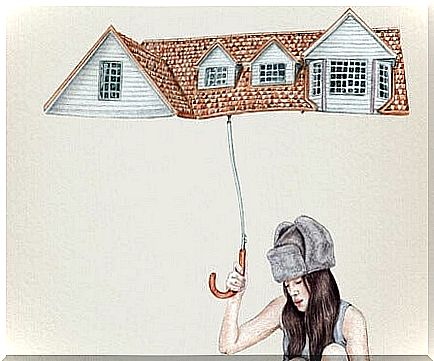If You Want To Help Me, Do Not Put Yourself In

If you really want to help me, do not say anything. Respect my space and leave me alone. Do not say “ what did I say?”, “You always make the same mistake”, “you have no choice”… do not make it hurt even more. Do not interfere.
Understand for once that the best way to help sometimes is not to help. Show me your empathy, your understanding, but for one day I want you to stay on the sidelines.
Theodore Roosevelt said that between doing the right thing and doing the wrong thing, there is something much worse: not doing anything. It is obviously a political mentality, a constant fear of stagnation. Afraid of the voters who will not stand behind the one who does not step forward.
But President Roosevelt was wrong. However, there is a third option: do not indulge. Sometimes this option is the best.
The biggest problem with all of this is that we generally assume that lack of action or passivity is a sign that others do not care about us. So how do we begin to understand that sometimes it is better to choose immobility, not to help and instead take a step back?
Many psychologists say that the mind in the most complex of times urges us to give the simplest answers. We turn to mental shortcuts, heuristics, and they can be very successful.
When we see a friend get tired or a sibling feel down, we therefore hear an inner voice that says “leave her alone, give her space to think and accept the situation” .
Depriving people on time of their adversity can sometimes deprive them of a valuable chance to learn and grow.

There is an Eastern folktale about a man who found a silkworm cocoon in the park. Worried about the little animal and afraid that someone would step on it, he decided to take care of it. He put it in a box and took care of it with patience and attention.
When he got home, he noticed something. There was already a hole in the cocoon and the butterfly was already struggling to get out. In his eagerness to help , the man took a pair of scissors and cut up a piece of the cocoon to speed up the process. His intentions were good, but good intentions do not always give good results.
Man did not know that nature has its own rhythm, its own time and its untouchable truths. There are processes where all help is only harmful.
The butterfly came out and the man was waiting for it to start flying. However, the insect had come out too quickly. The man could only watch as it crawled in circles until it stopped moving – dead.

Some people do not need to be rescued just because they are in danger. Their suffering is something they must experience in order to flourish. There, in one’s own cocoon, in the softness of one’s own sorrow, in the sticky corners of doubt and disappointment.
There are trips that people have to make in solitude without help, without being rescued by people with good intentions. Do not embark on these trips.
Maria Montessori said that all unnecessary help hinders development. This idea is linked to the concept of “proximal zone theory” by Lev Vygotsky. It is a concept that is not only applicable to education, but also many of our everyday environments and relationships.
The “proximal zone theory” says that in order to improve someone’s abilities , we must give him the necessary help to develop his own potential. This suggests, for example, that we should not take on responsibilities that are not ours. It is to identify the points where our help is a stimulus for learning.
We are very aware that it is not always easy to know where the boundaries go; where “doing nothing” is what is recommended. It is difficult when feelings of responsibility arise, even when the person going through the difficult period is not close to us.
Even if the brain does not make judgments from a physiological point of view, the conscience will.

So one thing we should be clear about is that it is not always good to give constant, unlimited help. The result can be catastrophic: people we help can become passive, selfish and develop a strong dependence on us.
The key is to notice when the situation is really vulnerable. We also need to be sure of what the person really needs. Sometimes the best help is to listen or just “be there” without saying anything. To give them proof that we are there for them, that we can be a shoulder to cry on if they want, that we are a person who respects their space and solitude when needed.
We can be a streak of light that illuminates their path at a given moment, limited and fleeting. It allows them to spread their wings and stop moving in circles. However, we can also do nothing, a sometimes just as valid and helpful choice. Do not lie down unless necessary.









